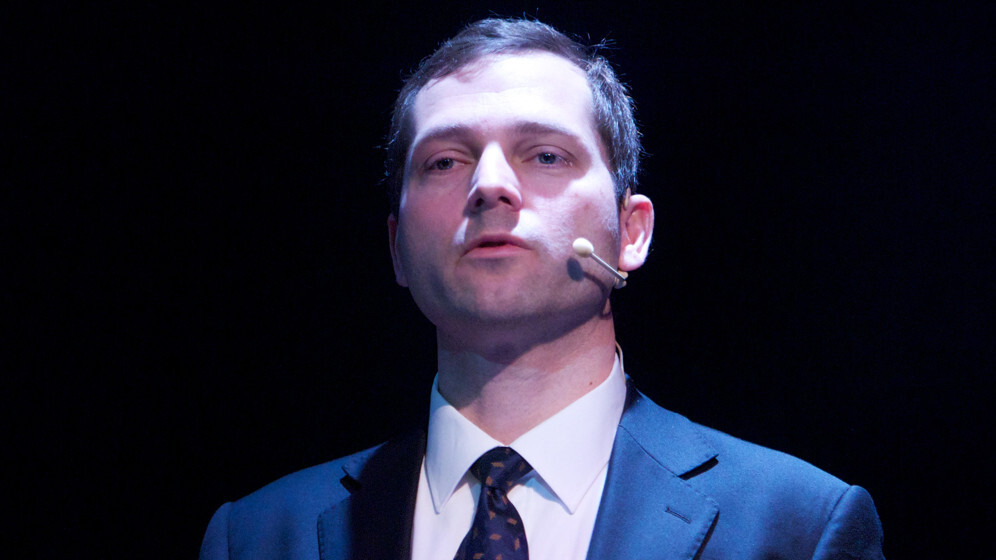
“I have few average days,” says Horace Dediu, one of the most well-respected watchers of the mobile industry, and Apple in particular, when asked about how he fills his time while running the Asymco blog and consultancy.
“Right now it’s 2am and I’m in Australia. If I am at home my work is usually a few hours of reading and email followed by about 2 to 3 hours writing a post. If I have time, I read and look at data. Ideally I would prefer to have a regular schedule but travel is making it impossible.”
Indeed, later this month Dediu’s international speaking schedule takes him to the Thinking Digital conference in Gateshead, UK, an event we described last year as “The UK’s answer to TED.” The Next Web is a media partner for the event and we caught up with him to discuss analysts, Apple and emerging markets.
TNW: Some Apple analysts attract derision for, say, predicting an Apple-branded TV that never appears. What makes a good analyst and how are analysts’ predictions different in importance from those of a good tech blogger?
Dediu: Apple analysts vary. If you refer to “sell-side” analysts who are working for financial services companies, their paychecks are not tied to accuracy or foresight. They are sold as a resource to clients of the firm and their work is meant to manage client expectations. They depend on access to management and supply chain managers for any differentiation. It is not a recipe for understanding a company’s resources, processes or priorities.
Another set of analysts are market analysts like Gartner or IDC that try to measure the market or industry. They make fewer predictions about a single company but they too can be forced into a blunder by suggesting that Apple or any other company behaves like any other.
There are other observers who are often more insightful. They are not called analysts because they don’t have that job title. They are bloggers or people who may have worked in the industry and can make informed opinions. They are typically more insightful because they are motivated to provide accurate predictions to establish credibility and reputation with a wide audience who is not expected to pay for their work.
So paradoxically, the opinion of those who are highly paid should be treated with suspicion while the opinion of those subject to peer review should be treated with respect. It brings to mind the difference between highly paid fortune tellers and pundits whose methods are obscure vs. poorly paid graduate students whose methods are open to all. Whose opinion is worth more?”
TNW: There has been much talk recently on the ‘decline’ of Apple, as reflected in its stock price. What’s your take on this ‘decline’ and the suggestions that Tim Cook should be fired?
Dediu: I’ve written about the perception of decline several times. The quick answer is that as Apple has risen, the number of people who have taken it upon themselves to give commentary on how Apple should improve itself has increased. If the increase in commentary is in proportion to Apple’s sales then it has risen ‘exponentially’.
Similar to the notion that half of all Apple users became Apple users last year then perhaps more than half the comments on Apple are from people who never commented on Apple before. Therefore these new comments come from people who did not observe Apple prior to its most recent ascent. Therefore the current dip in share price is the first they’ve ever observed first-hand. They give it disproportionate significance. I’ve pointed out that there have been massive declines in share price in the last decade. Most of them rooted in forgettable reasoning.
“My rule of thumb is that investors should expect a 40% drop in Apple shares at any time and for no reason. Warren Buffet seems to agree. There can be a long discussion about why that is but I think it suffices to say that there are too many institutional owners, and hence too much concentration of homogeneous thought about the company.”
“Anyone suggesting Tim Cook should be fired is a neophyte. This would apply to anyone suggesting the firing of any CEO’s. The process of hiring and firing CEOs is complex, political and varies widely by company and reason.”
TNW: Apple is seeing revenue from China rise despite a relatively modest position in the country’s smartphone market share which Samsung now leads. Would you classify the company’s operations in the country as on the right road for success, or is it under-performing?
Dediu: Apple’s China revenues for Q1 have increased nearly four-fold in two years. China share of Apple’s global revenues more than doubled going from 9% to 19% in the same two years. I’m unsure of what level of performance should be considered good enough but Tim Cook said it will be their biggest market. He should know.”
TNW: At what point do you believe that the majority of people in emerging markets will own smartphones (if at all)?
Dediu: The question is academic. The more important question is when will mobile broadband be available to all those who own smartphones. The economics of providing bandwidth are out of sync with the economics of providing terminals that can consume it. If it continues this way, all those smartphones will not be used for mobile data and will thus be essentially dumb. (Broadband is only a proxy. Mobile app usage, messaging, mobile media and payments will all have to be served over a broadband network which may not scale.)
“The phenomenon of ownership without usage was all too common years ago when Symbian and BlackBerry dominated smartphone share. The result was a lack of “stickiness” of ecosystems and a wholesale replacement when alternatives were presented.”
—
Horace Dediu will be talking about the future of computing at Thinking Digital, a conference we described last year as “The UK’s answer to TED.” The conference takes place on 21-23 May 2013 in Gateshead and other speakers include Facebook’s Maria Giudice; Aza Raskin, VP of Design at Jawbone; UX designer, Aral Balkan and the BBC’s Maggie Philbin.
The final few tickets are available now.
Image credit: AppWorks2012 / Flickr
Get the TNW newsletter
Get the most important tech news in your inbox each week.




